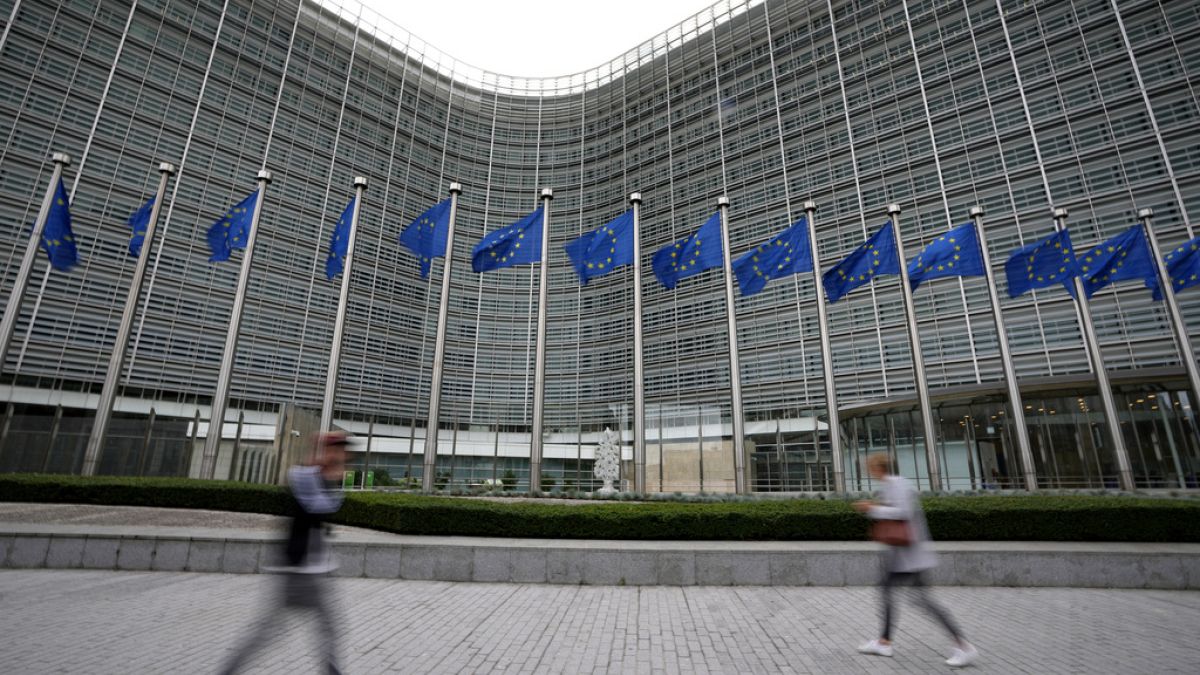Europe
EU Commission promises ‘firm, immediate’ reaction to new US tariffs

The EU Stands Firm Against Unjustified Tariffs: A Commitment to Fair Trade
The European Union has reaffirmed its unwavering commitment to defending a rules-based global trading system, emphasizing the importance of low tariffs and open markets. In response to the announcement by U.S. President Donald Trump of reciprocal tariffs on EU exports, the European Commission issued a strong statement on Friday, calling the move “a step in the wrong direction.” The EU executive made it clear that it will react swiftly and decisively to protect its interests, rejecting the notion that increased tariffs are justified. The Commission emphasized that tariffs are essentially taxes and that any barriers to free and fair trade will be met with firm and immediate action. This stance underscores the EU’s belief that an open global trading system benefits all partners and is essential for maintaining economic prosperity worldwide.
The EU’s Reaction to U.S. Trade Policy: A Swift and Decisive Response
Since the Trump administration announced plans to impose 25% tariffs on steel and aluminum imports earlier this week, the EU has been bracing for a potential trade war with its long-standing ally. The U.S. tariffs, set to take effect on March 12, will apply to imports from various countries, with Trump justifying the move through a “country-by-country” assessment process expected to be completed within weeks. The European Commission has not minced words in its response, describing the U.S. actions as unjustified and counterproductive. The EU maintains some of the lowest tariffs globally and sees no rationale for the increased U.S. tariffs on its exports. The Commission has made it clear that it will not hesitate to retaliate against any unfair trade barriers, including those targeting its legal and non-discriminatory policies.
A Historical Perspective: The 2018 Trade Dispute and Its Aftermath
This is not the first time the EU has found itself at odds with the U.S. over trade policy. In 2018, the Trump administration implemented tariffs on aluminum and steel, prompting the EU to retaliate with tariffs on a range of American products, including Harley-Davidson motorcycles, bourbon whiskey, and blue jeans. While these sanctions were temporarily lifted under the Biden administration, the truce appears to be fragile, and the EU has signaled that it may reimpose these measures if necessary. The current tensions highlight the ongoing challenges in the transatlantic trade relationship, with the U.S. increasingly adopting protectionist policies that clash with the EU’s commitment to a rules-based trading system.
The Potential Consequences of a Trade War: A Global Economy at Risk
The escalating trade tensions between the EU and the U.S. raise concerns about the broader implications for the global economy. A full-blown trade war could disrupt supply chains, increase costs for consumers, and undermine the stability of international markets. The EU has long been a champion of free and fair trade, working closely with partners like the U.S. to reduce trade barriers and promote economic cooperation. However, the Trump administration’s U-turn on trade policy, marked by unilateral measures and protectionism, threatens to undo decades of progress. The Commission has warned that the U.S. is now undermining the very principles of the rules-based trading system that has allowed world trade to flourish.
The EU’s Arsenal of Trade Defenses: Preparing for a Strong Response
The European Union is not without tools to defend its interests in the face of unfair trade practices. The EU has recently developed an “anti-coercion” instrument, which gives it the ability to impose restrictions on countries that attempt to undermine its policies. This instrument includes measures such as limiting participation in public procurement tenders, restricting licenses, and imposing restrictions on trade in services and intellectual property rights. The Commission is currently evaluating its response to the U.S. tariffs and is prepared to use these new trade defenses to counter any unjustified barriers. The EU’s approach is designed to protect its industries and workers while also upholding the principles of fair and predictable trade.
Upholding the Rules-Based Trading System: A Shared Responsibility
The European Commission has called on all trading partners to reinforce the rules-based global trading system, emphasizing that the benefits of open markets are shared by all. For decades, the EU and the U.S. have worked together to reduce tariffs and other trade barriers, creating a predictable and transparent framework that has fueled economic growth worldwide. However, the recent U.S. tariffs represent a significant setback in this effort, undermining the commitments that underpin the global trading system. The EU remains committed to its role as a defender of free and fair trade, but it is clear that the U.S. actions have introduced new challenges that require a strong and united response. As the situation continues to evolve, the EU will remain vigilant, ready to act decisively to protect its interests and uphold the principles of fair trade.


















